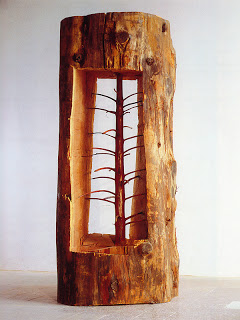Following on from my last post comparing operational effectiveness with knowledge effectiveness, I’m reminded of the “Choke Model” from my BP days. The choke model was a way of modelling production losses at every stage in the process, for example during the refining of crude oil to produce the raw materials and refined products which customers want to buy. Starting with 100%, every step in the process was analysed, and the biggest “chokes” were identified and targeted for improvement. There is a belief in BP that the total of all of these small percentage production losses across all of its refineries was the equivalent to having a brand new refinery lying dormant! Now when you focus it like that, it’s one big financial prize to get after.
I think there’s a similar perspective that we could take looking at the way in which knowledge is lost during our efforts to “refine it” and transfer it to customers. Sometimes we are so upbeat about “lessons learned” and “learning before, during and after”, that we start believing that we’ve got organizational learning cracked. I don’t believe that! Let’s take a walk through an organizational learning cycle and see where some of the “chokes” in our knowledge management processes might be.
Imagine that you’re working with a team who have just had an outstanding success, completing a short project. There’s a big “bucket of knowledge” there, but from the moment the project has completed, that bucket is starting to leak lessons. (On a longer project, the leakage will start before the project has ended, but let’s keep it simple for now and imagine that memories are still fresh).
From this moment, your lessons start to leak. The team will be disbanded, team members join other projects, and people start re-writing the history of their own involvement (particularly as they approach performance appraisal time!).
Leak!
So we have a project review to capture the lessons. Good – but not a “watertight” process for learning everything that might be needed.
- Are the right people in the room? Team? Customers? Sponsor? Suppliers? Partners?
- Are you asking the right questions? Enough questions? The questions which others would have asked?
- Are people responding thoughtfully? Honestly? Are people holding back? Is there politics or power at play which is influencing the way people respond? Is the facilitator doing their job well? Are they pressing for detail, for recommendations, for actions?
Leak!
And then we try to write-up this rich set of conversations into a lessons learned report. However hard we try, we are going to lose emotion, detail, connections, nuances, the nature of the interactions and relationships – and all too often we lose a lot more in our haste to summarise. Polanyi and Snowden had something to say about that.
Leak!
And what happens to that report? Is it lost in the bowels of SharePoint? Is it tagged and indexed to maximise discovery? Is it trapped on someone’s hard drive, or distributed ineffectively by email to “the people we thought would need it”?
Leak!
And of course, just because it’s stored, it doesn’t mean it’s shared! Sharing requires someone to receive it – which means that they have to want it. Are the potential users of this knowledge hungry? Curious? Eager to learn? Encouraged to learning rather than reinventing? Infected with “Not invented here”? Believe that their new project is completely different? Willing to root around in SharePoint to find those lessons? Willing to use the report as a prompt to speak with the previous team, and to invite them to a Peer Assist to share more of their learning?
Leak! Leak! Leak!
So you see, it’s a messy, leaky, lossy business, and I think we need to be honest about that. Honest with ourselves as KM professionals, and honest with our colleagues and customers.
That doesn’t mean that we shouldn’t work hard to address the leaks and losses - quite the reverse. We should be anticipating and responding to each one. Whether that means having a “knowledge plan” throughout the lifetime of a project, engaging leaders to set the right expectations, providing support/training/coaching/facilitation/tools etc. There’s a lot we can do to help organisations get so much better at this. They might not save the equivalent of a Refinery’s worth of value – but they might reduce their dependence on external consultants.
I think it starts with the question – “how valuable do we believe this knowledge is?”. If you look at the picture at the top of this blog and imagine it’s happening on a beach somewhere, then it’s just part of the fun in an environment of abundance. You can fill the bucket up again and again...
If the picture was taken in a drought-stricken part of the world – an environment of scarcity – well that’s a different story.





















